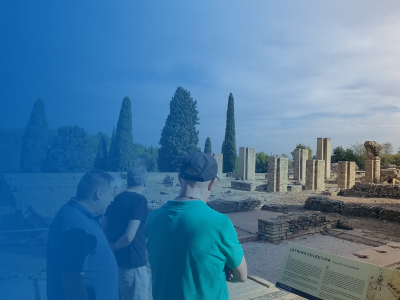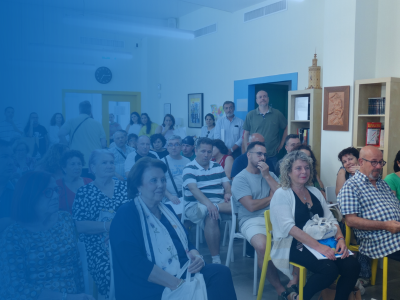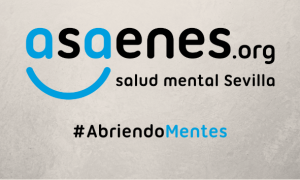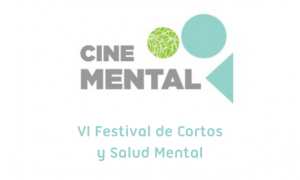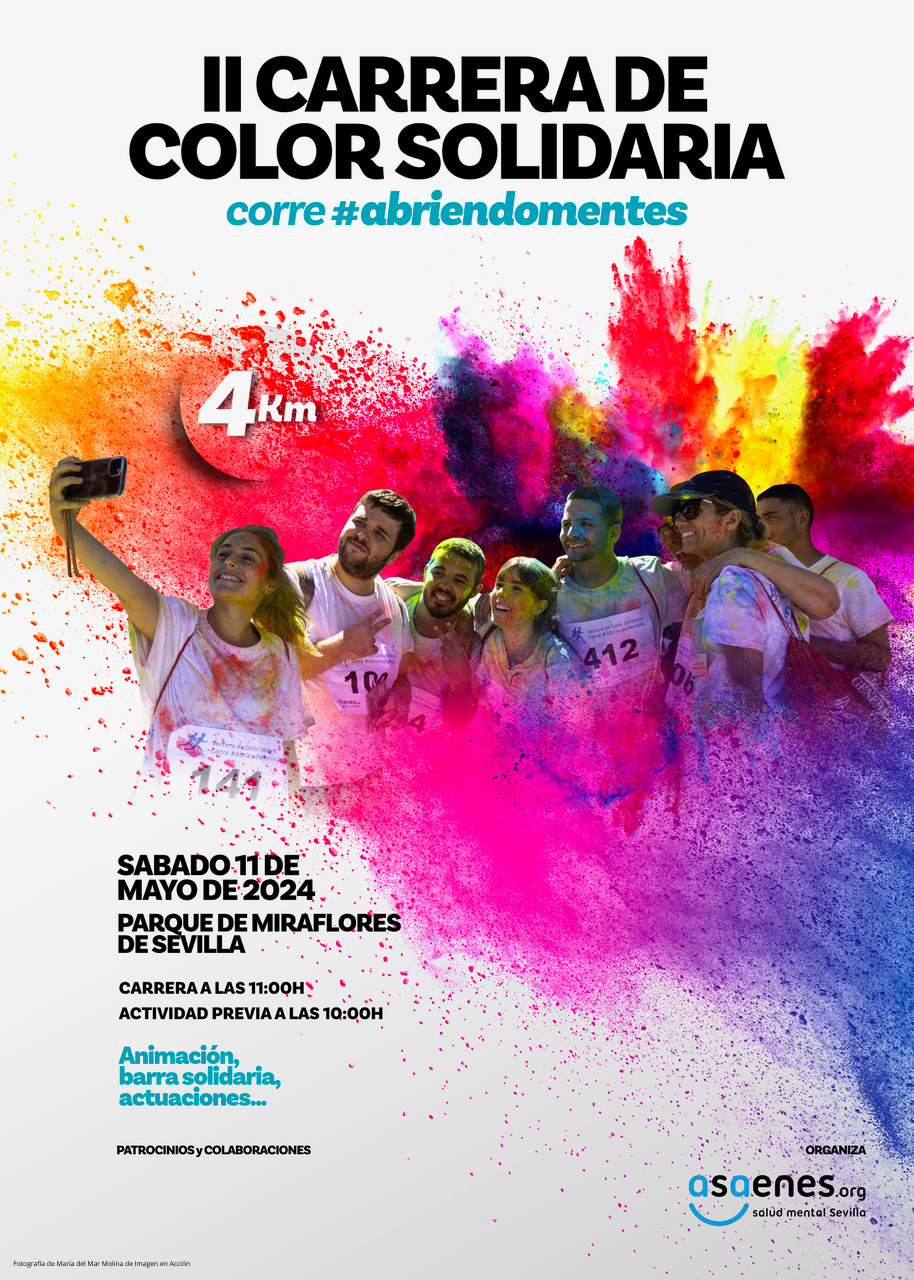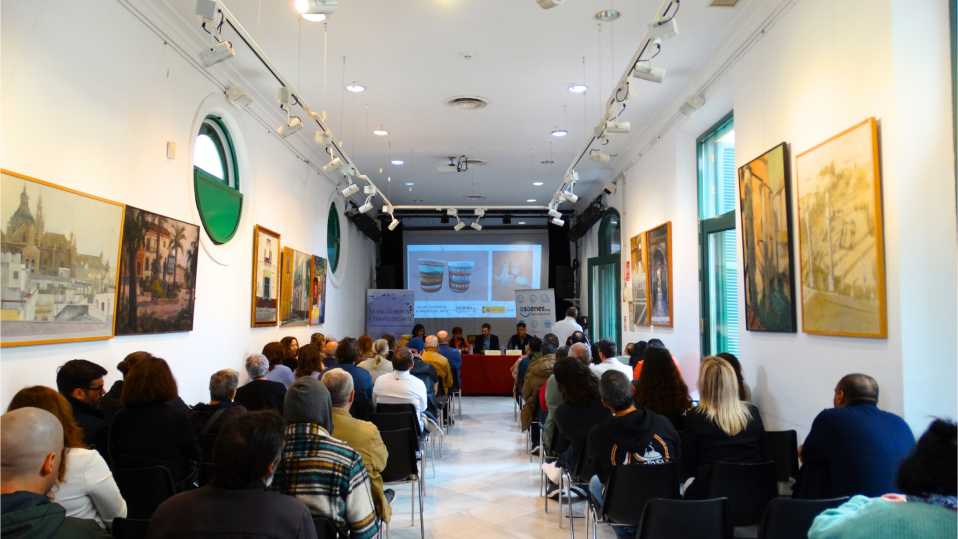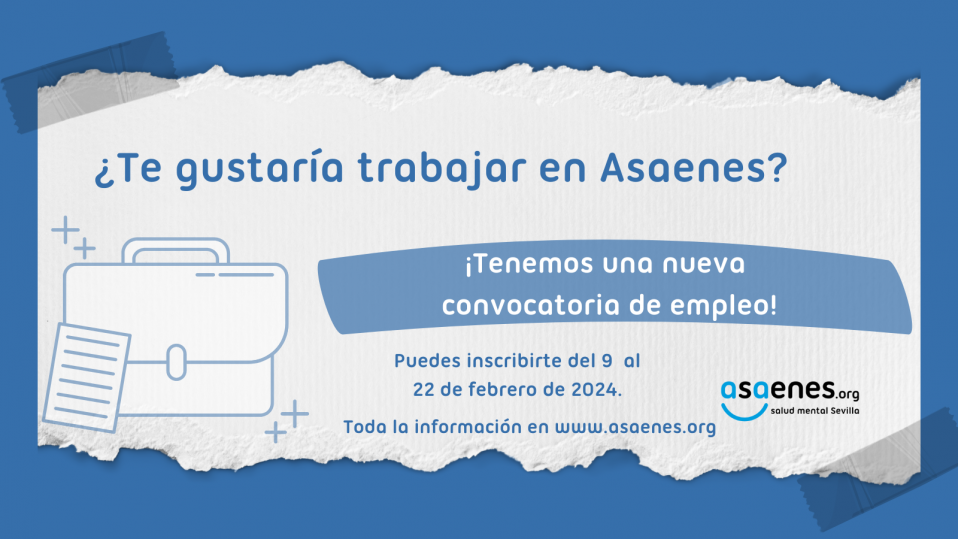What is Mental Health?
According to the World Health Organization, Mental Health is not just the absence of illness or infirmity, it is defined as a state of well-being in which the individual is aware of his or her own abilities, can cope with the normal stresses of life, can work productively and fruitfully, and is able to make a contribution to his or her community.
Therefore we consider that Mental Health is a matter of all people, and its improvement requires the participation and commitment of the citizenry.
What is psychosocial disability?
Psychosocial disability is not related in any way to intellectual disability, nor is it caused by neurodegenerative problems. According to the World Health Organization, psychosocial disability refers to “persons diagnosed with a mental disorder who have suffered the effects of negative social factors such as stigma, discrimination and exclusion.”
Why was the Short Films and Mental Health Festival created?
Given the problem that, generally, the media tend to spread a distorted and discriminatory images of Mental Health, leading to the normalization of practices that violate Human Rights and fundamental freedoms in the field of Mental Health, the need to create this Short Films and Mental Health Festival has arisen, taking into account the value of film as a powerful tool of communication.
Because cinema has always wanted to tell stories and Mental Health has many stories to tell.
The Short Films and Mental Health Festival focuses on:
- Providing a positive image of Mental Health by fighting stigma.
- Responsible dissemination of an image of Mental Health that contributes to its promotion and prevention.
- Valuing diversity, making the psychosocially disabled groups visible.
- Demanding quality social and health care.
Taking these aspects into account, through the Festival of Short Films and Mental Health we aim to:
- Raise awareness of the need to defend the rights of people affected by mental health problems, by fighting against stigma and false prejudices.
- Put an end to paternalistic behaviour that leads to a series of measures that limit and restrict the freedom of people affected by mental health problems, making their autonomy difficult.
- Encourage the empowerment of people affected by mental health problems to help them take responsibility for their own recovery.
- Promote mental health self-care, raising awareness of the need to develop education and emotional management programmes that have an impact on the prevention of psychosocial suffering, trauma and the development of mental health problems.
- Attend to the fundamental rights of people with psychosocial diversity as set out in the UN International Convention on the Rights of Persons with Disabilities.
- End coercive practices seen when attending to mental health crises, respecting the will and preferences of people affected by mental health problems.
- Raise awareness of a recovery perspective in Mental Health, as opposed to a focus on a pathologically chronic one.
- Assert the need for a model of “community” quality care, providing more attention and resources to psycho- and socio-therapeutic approaches, confronting the problems of overmedication and opting for a cross-disciplinary approach.
- Limit the diagnostic label to a clinical classification tool, thus avoiding that affected people confuse their identity with the symptoms.
- Demand that psychotropic drugs be prescribed responsibly and honestly, reporting all possible side effects and providing various alternatives for pharmacological treatment.
- Independently from Mental Health, we intend to make gender equality visible, as well as to promote an inclusive language.
Content requirements
- It’s obligatory that the participating short films focus mainly on Mental Health.
- The topic of Mental Health must to be approached from an empathic point of view, without any false prejudices about the mental illness and the people that suffers from it.
- Points relating to mental illness must send a message that raises awareness and prevention, integrating these people in society and warning of the need for emotional education.
- The genre can be whatever the film maker wants (comedy, drama, animation, etc.) as long as the message given about the mental illness does not incur in stigma or false prejudices about mental health (ideas pairing pity or violence to the personality of the person with mental illness, only due to the illness).
- The image rights of people appearing in the films must be protected by Organic law 1/1982 regarding civil protection of that honors the rights, and the personal and family privacy and image, found in Article 18 of the Spanish Constitution.
- The short film that deals with the gender perspective focused on equality and inclusion will be positively valued.
The Style Guide of the Mental Health Confederation of Spain is included for any consultations.
Guía-de-Estilo-versión-DEF-Baja-2
Technical requirements
- Videographics and cinematographic productions in digital format can be submitted.
- Entries may be submitted in their original language versions. Subtitles are mandatory if the project is done in a language other than Spanish.
- If the film is made in Spanish subtitles are not required, but if , they are included it will be rated positively because of their inclusive nature.
- Entries that can’t be watched because of technical or formatting problems won’t be submitted.
Participants
- The short films can be from what ever any part of the world.
- There is no age limit.
- Entries must be created between the years 2018 and 2020 until the date of the deadline. Entries may have been shown and awarded in other festivals.
- The maximum duration is 20 minutes, including credits, without a and there is no minimum duration. Each participant can submit three entries maximum.
Important
- It´s essential to present the technical documents and the required documentation.
- Acknowledgment of receipt by e-mail will only be provided when expressly requested by the participant.
Awards
- Best Fiction Short 750 € prize.
- Best Documentary Short 750 € prize.
- ASAENES Award for the best short film, either fiction or documentary, made by people with a mental illness, or their friends or family, as well as participating secondary high schools. Gifted with 750 € prize.
- “Fundación Audiovisual de Andalucía” Award for the best short film, either fiction or documentary, made in Andalusia. This award consists of the promotion of the short film throughout the entire region of Andalusia in the “Andalusian Audiovisual Selection”.750 € prize.
- “Canal Sur Radio y Televisión” Award for the Andalusian audiovisual creation of the best short, either fiction or documentary, about mental health made in Andalusia. “El Dilema” trophy will be awarded and the film will be featured on all Canal Sur channels. This award is regulated by the RTVA rules, not the rules of the festival organizers. (This Award is not still confirmed).
- Audience Award. Special mention with no monetary prize.
Selected Films
- Among all the entries received, a pre-selection will be made by a technical jury made up of professionals from the health and audiovisual fields, with up to 20 entries competing for the final prize and which can be viewed by the public.
- The Organization will inform of classifying entries by an e-mail or phone.
- The selected entries will be required to submit the completed registration form, a photocopy of an official identification document (ID card, passport, residency card) of the or film maker or the film maker’s representative, three images of the short film in jpg format and a synopsis, of no more than 100 words, about the project presented.
The representatives of the three finalists in each category, who are eligible for the prizes, will be notified one week in advance to facilitate attendance, in the case they are able and willing to attend. The finalists of the Audience Award will not be notified.
Additional information
- The jury reserves the right to leave some of the prizes unawarded, as well as to award a runner-up prize, without economic compensation, if deemed appropriate.
- The jury may increase the number of selected entries if it sees fit. Less than 20 works entries may also be selected if the jury deems it appropriate.
- Only one prize will be awarded per entry, with the exception of the Audience Award, which may coincide with the jury’s decision.
- The jury’s decision is definitive.
- The prizes will be subject to the corresponding tax deductions.
Winners Requirements of the Winners
The winners will give up, free of charge and for an undetermined period, all rights to the image and use of the film to the organization of the Festival so that it can be used, without any motive for profit, for its promotion. The organization will use the entries for educational and awareness purposes, excluding their exhibition on the Internet. The short films that are finalists and winners will be screened at the Festival’s Selections that aim to raise awareness. They may also be screened in promotional activities of Mental Cinema. The film makers will be informed of each action carried out with their short film.
Lastly
The organization is not responsible for accidents or unforeseen events that may occur to the projects.
The person competing for the prizes must be the owner of the exploitation rights of the project.
The film makers guarantee the legitimacy of their work and that they do not infringe or violate the industrial and intellectual property rights of another film maker. If this is not the case, in addition to this not being the Organization’s responsibility, the entry will automatically be excluded from the competition.
The organising entity reserves the right not to admit audiovisual productions that, due to their conditions, characteristics, format, subject matter or any other reason related to the film maker, producer or production company, make them unsuitable in its opinion.
Participation in this competition implies full acceptance and compliance with these rules, as well as the resolution by the organization of any unforeseen event not specified in these rules.
Any additional information or clarification will be provided by mail.


